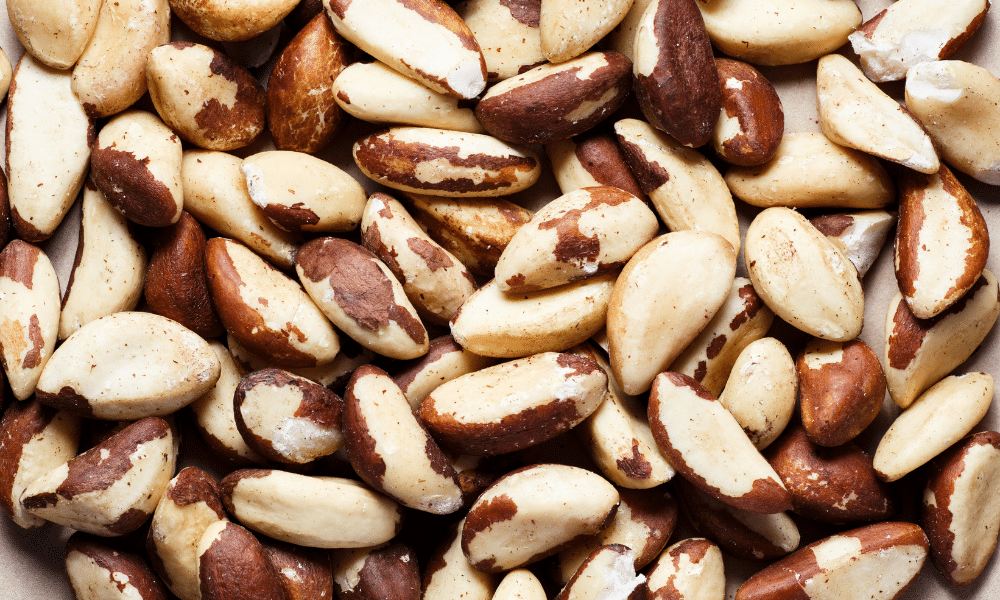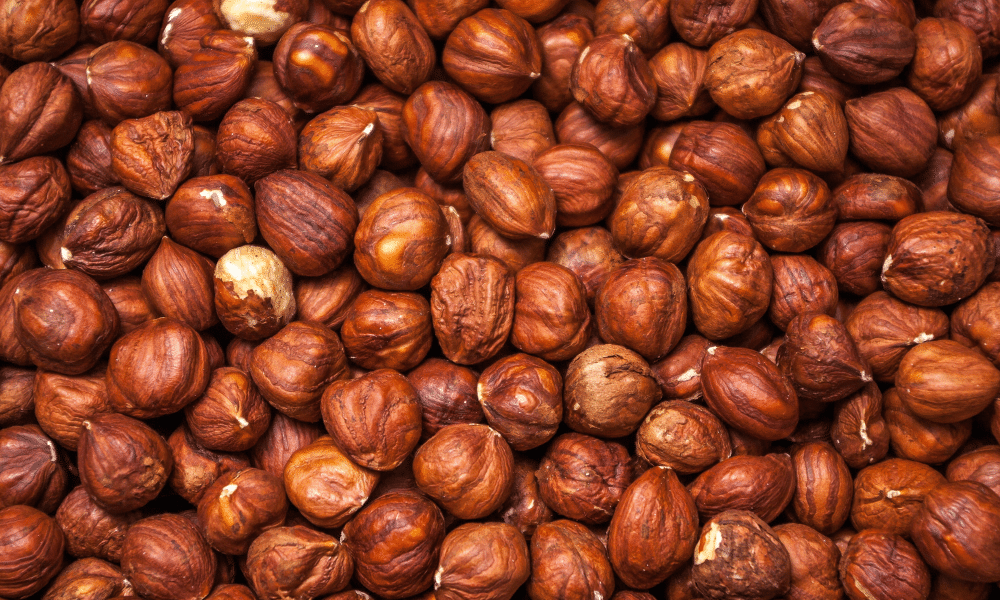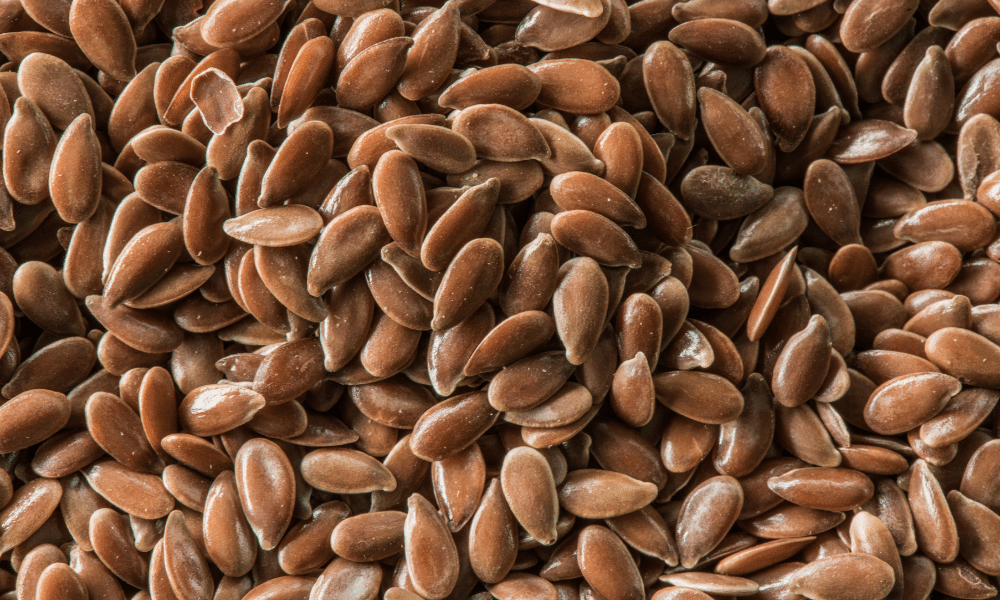Almonds are an extremely versatile nut, coming in a range of forms that help to enhance the taste and texture of countless dishes.
Typical in the west, almonds are sold and consumed once they have browned. But in the middle east, it is common to eat green almonds too!
To some, almonds are a luxury rather than an everyday cooking ingredient. So what alternatives are available that won’t break your bank?
Our 4 Substitutes for Almonds
It is the high-fat content that gives almonds their buttery texture. But they are a stable enough nut to provide structure to delicate recipes without overwhelming the dish with a nutty flavour.
Here are our top 4 almond substitutes that you can use in various recipes:
1) Almond Extract
If you want that strong almond taste in your dish, almond extract is the best substitute. It is mainly used in baking to give sweet goods an extra taste but can be used sparingly in savoury food.
Some people prefer to use almond flavouring instead of almond extract. It is cheaper but has less flavour, mixed with other ingredients to lower its price.
For the best almond flavour, you will want to buy almond extract.
Though almond extract will deliver on flavour, it will lack any structural benefits that some recipes use almond products for, such as ground almonds in meringues. Understand why a recipe calls for almonds before substituting them for almond extract.
Less is More
Almond extract is potent and can be overwhelming and butter if not used in moderation. Remember, extracts and flavourings become stronger as they bake. If your batter does not taste much like almonds, refrain from adding more extract.
2) Brazil Nuts
Texture-wise, brazil nuts can be a little tougher than almonds. But once they have been skinned and properly prepared, they make for a sound almond replacement.
Likewise, if you are using brazil nuts to replace ground almonds, they will soften up and take on a very similar texture to ground almonds once blended.
Brazil nuts tend to be higher in fat than almonds, meaning that they will create a creamier texture when blended or ground. This means that you should not use brazil nuts as a structural almond replacement in delicate recipes.
Almonds are native to the Mediterranean, whereas brazil nuts grow in Brazil and other South American regions. This may lead to price differences depending on where you shop, though brazil nuts tend to be less expensive.
Limit Your Portions
Brazil nuts are very high in selenium which can be poisonous if eaten in excess, although can be healthy if eaten in moderation. 1 brazil nut is enough to fulfil your daily selenium intake, but you can eat up to 3 a day without any issue.

3) Hazelnuts
As a whole nut, hazelnuts tend to be slightly softer once de-skinned than almonds. But despite this difference, hazelnuts will not alter the feel or taste of your recipe when used to replace almonds.
They are very mildly flavoured and create the same texture as ground almonds once they have been ground or blended.
Likewise, hazelnuts are a very mildly flavoured nut that pairs nicely with sweet and savoury pallets—particularly chocolate and rich, red meats.
Roast Them for Added Flavour
Hazelnuts are well known for the deep flavours that they can develop once roasted.
To push your dish to that next level, bake your hazelnuts on a high temperate for 30 minutes or so. Allow them to cool, then chop them up or blend them as you would regular almonds.

4) Flax Seeds
Like almonds, flax seeds are high enough in fat to create a pleasant creamy texture in baked goods.
Though flax seeds differ slightly from almonds as they can create a lighter bake. This makes it an excellent almond substitute in cakes, muffins and other fluffy bakes.
Flax seeds are praised all over the health world as a good source of protein and fibre. They can offer a healthy kick to any almond-based recipe without ruining the dishes flavour. However, this is only because they are pretty flavourless, even when compared to almonds.
You may want to add almond extract or other nuts still to give your recipe that slight nuttiness.
Avoid Excessive Moisture
Flax seeds are often used to help thicken smoothies as they quickly absorb a lot of moisture. This could work in your flavour but may cause more issues than benefits. To avoid overly thick cake batter, only use ½ as many flax seeds as a recipe calls for.

Other Substitutes for Almonds
If you do not have the budget for other fancy nuts or expensive flavourings, then some cheaper substitutes will work just as well as almonds in cakes and cookies:
- Vanilla Extract – Perhaps the most common baking ingredient everyone will have in their pantry, vanilla extract is interchangeable with almond extract. But it will only replicate some of the almond flavours with none of the texture.
- Cashews – Depending on where you show, cashews can be cheaper and more common than almonds. They are better suited for savoury dishes once blended but can be used in sweet recipes as a last resort.
Summary
While a valuable baking ingredient, almonds can be one of the more expensive nuts to buy. To incorporate the same almond flavour into your bakes, use almond extract. It will last twice as long and will make your bakes taste just as delicious.
